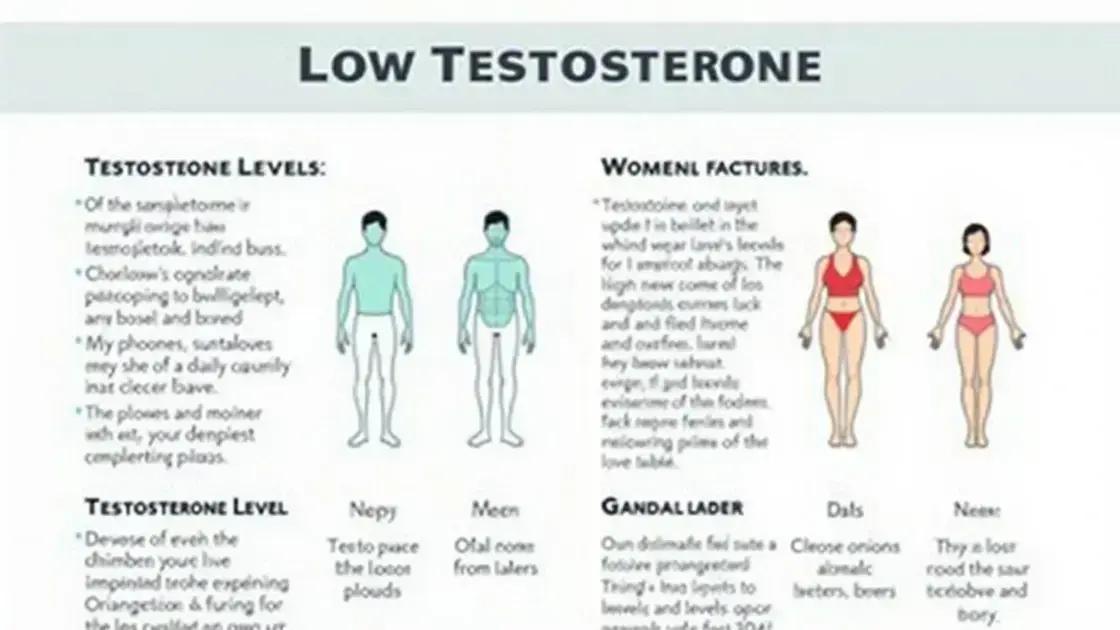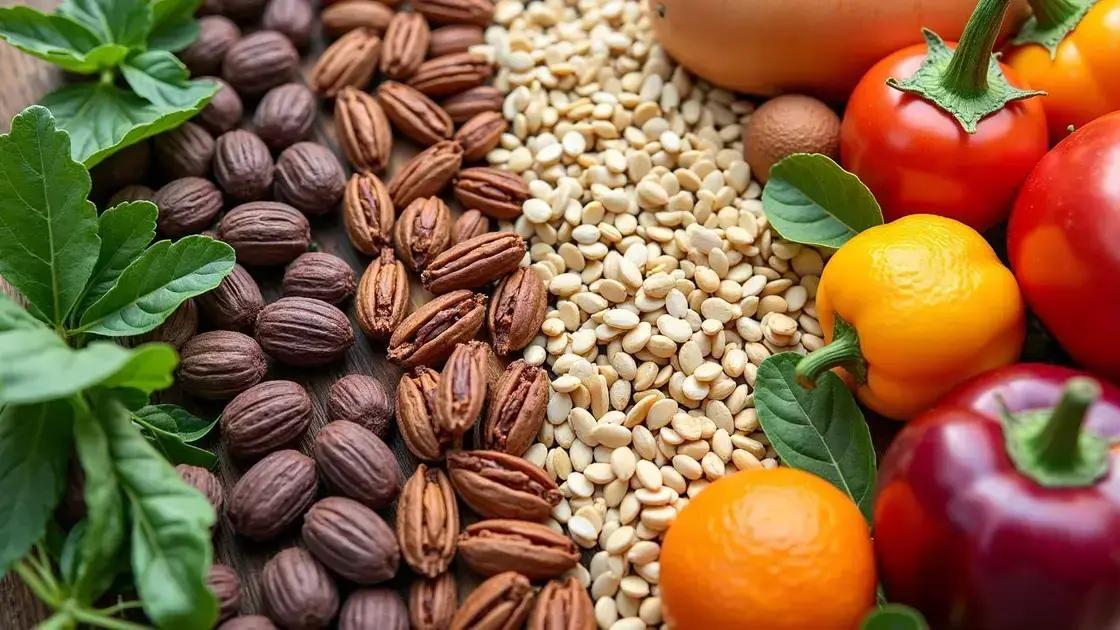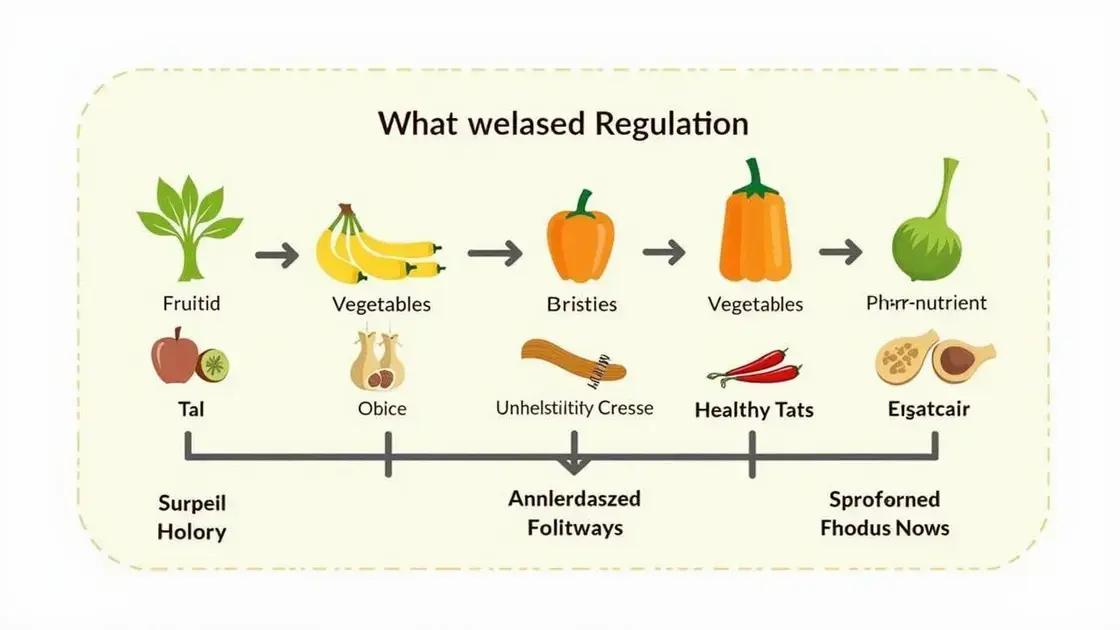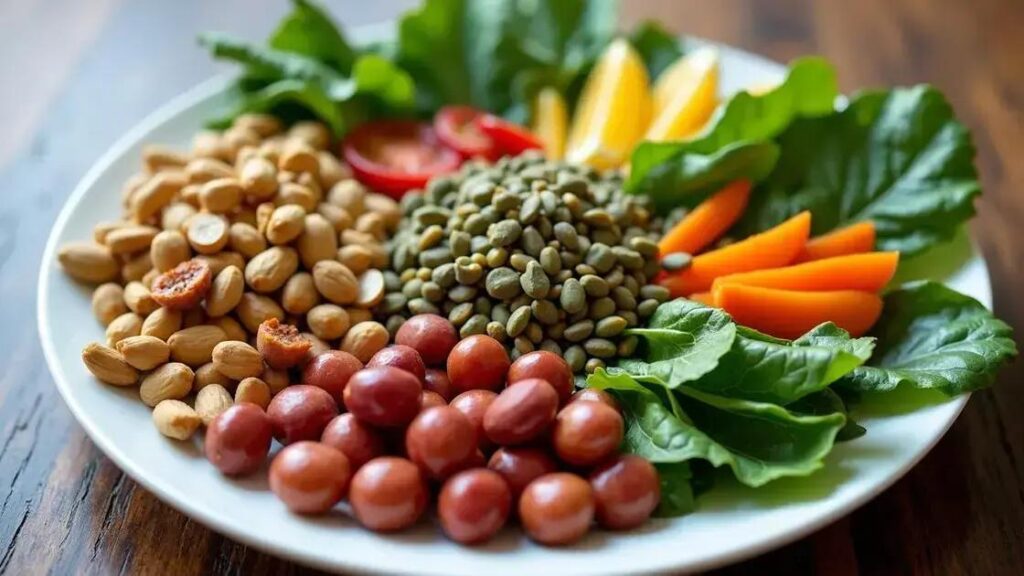A plant-based diet can positively impact testosterone levels by providing essential nutrients, promoting hormonal balance, and supporting overall health. Incorporating whole foods, healthy fats, plant proteins, and dietary fiber are key strategies for enhancing hormone regulation.
The impact of plant-based diets on testosterone levels is a topic gaining attention in health discussions. Many are curious about how nutrition influences hormone levels, specifically testosterone, which is crucial for many bodily functions. Research shows that dietary choices can significantly affect hormonal balance. This article explores the relationship between plant-based diets and testosterone, helping readers understand the science behind these findings and practical tips for incorporating healthier eating habits.
Understanding Testosterone Levels

Testosterone is a vital hormone that plays a significant role in various bodily functions. It is crucial for muscle growth, bone density, and the overall health of both men and women. Understanding testosterone levels is essential for recognizing how hormonal imbalances can affect your well-being.
What is Testosterone?
Testosterone is produced primarily in the testes in men and the ovaries in women. It is often referred to as the male sex hormone, but women also need it for healthy physiological functions. Testosterone levels naturally fluctuate throughout the day and decrease with age.
Normal Testosterone Levels
Normal testosterone levels vary by age and sex. For men, typical levels range from 300 to 1,000 ng/dL. Meanwhile, women usually have levels between 15 to 70 ng/dL. Low testosterone levels can lead to various health issues, including fatigue, depression, and decreased libido.
Factors Influencing Testosterone Levels
Several factors can influence testosterone levels, including age, obesity, stress, and medication. Lifestyle choices, such as diet and exercise, also play a vital role in maintaining healthy testosterone levels.
Symptoms of Low Testosterone
Recognizing the symptoms of low testosterone is crucial. Common signs include decreased energy, loss of muscle mass, mood changes, and difficulty concentrating. Addressing low testosterone may involve lifestyle changes, consultation with a healthcare provider, and dietary adjustments.
How Diet Affects Hormonal Balance

Diet plays a critical role in maintaining hormonal balance. What you eat can directly influence the production and regulation of hormones like testosterone. This is especially important for those considering plant-based diets.
How Macros Influence Hormones
Macro-nutrients—proteins, fats, and carbohydrates—each affect hormone levels in different ways. For example, healthy fats, such as those found in nuts and avocados, are essential for hormone production. In contrast, diets high in refined sugars can lead to hormonal imbalances, contributing to lower testosterone levels.
Vitamins and Minerals Matter
Certain vitamins and minerals are crucial for hormone health. Zinc and vitamin D are particularly important for testosterone production. Plant-based foods, like legumes and seeds, are rich in these nutrients, which can support hormonal balance.
The Role of Fiber
A plant-based diet often includes high amounts of fiber. Dietary fiber is essential for gut health and can influence the metabolism of hormones. A healthy gut may improve the balance of hormones and support overall health.
Impact of Processed Foods
Processed foods can disrupt hormonal balance. They often contain additives and preservatives that may interfere with hormone production. A diet rich in whole, plant-based foods can help maintain optimal hormone levels.
The Science Behind Plant-Based Diets

The science behind plant-based diets reveals their impact on overall health, including hormone regulation. Research indicates that plant-based diets can influence testosterone levels positively. This is primarily due to the nutrients and compounds found in plant foods.
Phytonutrients and Hormonal Function
Plant-based foods are rich in phytonutrients, which are beneficial compounds that support health. These phytonutrients can help in reducing inflammation and promoting hormonal balance. Foods like berries, leafy greens, and legumes provide essential antioxidants that further enhance hormone health.
Impact of Fats on Hormones
Healthy fats are critical in a balanced diet. Plant-based sources of fat, such as avocados, nuts, and seeds, support the production of testosterone. Unlike unhealthy fats found in processed foods, these healthy fats promote better hormone production and regulation.
Dietary Fiber and Hormonal Balance
High levels of dietary fiber in plant-based diets can improve gut health and hormone regulation. Fiber aids in the elimination of excess hormones, ensuring a healthier hormonal balance. Foods high in fiber include whole grains, fruits, and vegetables.
Research Findings
Numerous studies suggest that individuals who follow a plant-based diet may experience increased testosterone levels and overall better hormone health. For instance, one study found that men on plant-based diets had significantly lower levels of body fat, leading to improved hormone levels.
Practical Tips for Healthier Eating

Eating healthier is essential, especially for those looking to maintain balanced testosterone levels. Here are some practical tips for healthier eating to support your dietary goals.
Focus on Whole Foods
Choose whole, unprocessed foods whenever possible. This includes fruits, vegetables, whole grains, nuts, and seeds. These foods are packed with nutrients that can boost your health and support hormone balance.
Incorporate Plant Proteins
Opt for plant-based protein sources like beans, lentils, and tofu. These foods not only provide essential amino acids but also contain fiber, which aids in digestion and hormone regulation.
Hydrate Properly
Staying hydrated is key to overall health. Aim for at least 8 glasses of water a day. Proper hydration helps maintain energy levels and supports metabolic processes that are important for balancing hormones.
Limit Added Sugars
Reduce your intake of added sugars found in processed foods, snacks, and sugary drinks. High sugar consumption can lead to hormonal imbalances, which may negatively affect testosterone levels. Instead, try to satisfy your sweet tooth with fruits.
Plan Your Meals
Planning meals ahead of time can help you make healthier choices. Prepare meals that include a balance of carbohydrates, proteins, and healthy fats. Consider using seasonal fruits and vegetables to keep meals fresh and exciting.
In Summary: The Impact of Plant-Based Diets
Understanding the impact of plant-based diets on testosterone levels is essential for making informed dietary choices. Research supports the idea that embracing a plant-based diet can lead to healthier hormonal balance and improved overall health.
By focusing on whole foods, incorporating plant proteins, and staying hydrated, individuals can enhance their well-being. Additionally, practical tips like reducing added sugars and meal planning can further support healthier eating habits.
Making conscious choices about food can significantly influence testosterone levels and long-term health. Adopting a balanced approach to nutrition can lead to better physical and mental outcomes.
FAQ – Frequently Asked Questions about Plant-Based Diets and Testosterone Levels
What is the impact of a plant-based diet on testosterone levels?
A plant-based diet can positively influence testosterone levels by providing essential nutrients that support hormonal balance and overall health.
Are there specific foods that can boost testosterone in a plant-based diet?
Foods rich in healthy fats, such as avocados, nuts, and seeds, along with protein sources like beans and lentils, can help boost testosterone levels.
How does dietary fiber affect hormone health?
Dietary fiber improves gut health and aids in the elimination of excess hormones, supporting a healthier hormonal balance.
What practical tips can improve my plant-based diet?
Focus on whole foods, incorporate plant proteins, stay hydrated, limit added sugars, and plan your meals ahead of time for the best results.
How can I ensure I’m getting all the necessary nutrients on a plant-based diet?
Incorporate a variety of fruits, vegetables, whole grains, and protein sources to achieve a balanced intake of essential vitamins and minerals.
Can a plant-based diet lead to weight loss?
Yes, a plant-based diet can promote weight loss due to lower calorie density and higher fiber content, which helps with satiety.













